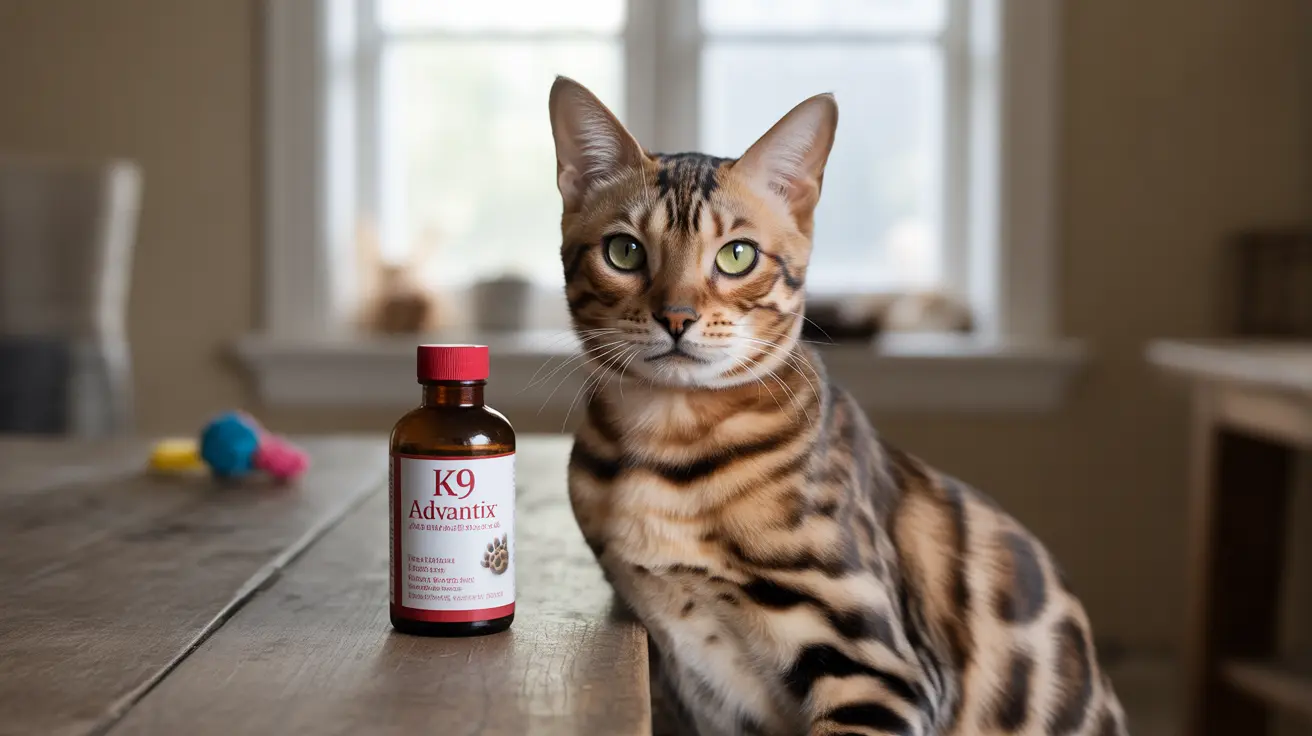Why K9 Advantix Is Toxic to Cats
When it comes to protecting our pets from fleas and ticks, using the wrong product can have devastating consequences. K9 Advantix, while highly effective for dogs, poses a severe and potentially fatal risk to cats due to its active ingredient, permethrin.
Cats lack a specific liver enzyme called glucuronide transferase, which is necessary to properly metabolize permethrin. This biological difference makes even minimal exposure to K9 Advantix potentially lethal for felines, whether through direct application or indirect contact with treated dogs.
Understanding Permethrin Toxicity in Cats
Permethrin, the toxic ingredient in K9 Advantix, is a synthetic version of pyrethrin, a natural insecticide. While dogs can safely process this compound, cats are extremely sensitive to its effects. Even small amounts can trigger severe neurological reactions within hours of exposure.
The danger extends beyond direct application. Cats can be poisoned simply by grooming a dog treated with K9 Advantix or lying in an area where the product has been applied. This makes households with both cats and dogs particularly vulnerable to accidental exposure.
Recognizing the Signs of K9 Advantix Poisoning
Early recognition of permethrin toxicity symptoms can mean the difference between life and death for affected cats. Common signs include:
- Muscle tremors and twitching, particularly in the ears
- Excessive drooling
- Severe agitation or lethargy
- Difficulty walking or loss of coordination
- Seizures
- Vomiting and diarrhea
These symptoms typically appear within a few hours of exposure but can take up to three days to manifest. Without prompt treatment, the condition can rapidly become fatal.
Emergency Treatment and Response
If you suspect your cat has been exposed to K9 Advantix, immediate veterinary care is crucial. Do not wait for symptoms to develop or worsen. Emergency treatment typically involves:
- Immediate bathing with mild dish soap to remove residual product
- Administration of anticonvulsant medications
- IV fluids and supportive care
- Temperature monitoring and regulation
- Extended hospitalization in severe cases
Safe Alternatives for Feline Flea Prevention
Several safe and effective flea treatments are specifically formulated for cats. These include products containing:
- Imidacloprid (Advantage)
- Selamectin
- Fipronil
- Spinetoram
Always consult with your veterinarian to choose the most appropriate flea prevention method for your cat's specific needs and situation.
Prevention in Multi-Pet Households
If you have both cats and dogs, take these essential precautions:
- Keep cats completely separated from dogs during and after treatment
- Apply dog flea treatments in a cat-free area
- Wait at least 24 hours before allowing cats to interact with treated dogs
- Store all flea treatments in secure, separate locations
- Double-check all product labels before application
Frequently Asked Questions
Why is K9 Advantix dangerous for cats and what ingredient causes toxicity?
K9 Advantix contains permethrin, which is toxic to cats because they lack the liver enzyme needed to metabolize it safely. Even small amounts can cause severe neurological symptoms and death.
What are the symptoms of permethrin poisoning in cats exposed to K9 Advantix?
Symptoms include muscle tremors, excessive drooling, seizures, difficulty walking, vomiting, and diarrhea. These typically appear within hours but can take up to three days to develop.
How should I treat a cat that has been accidentally exposed to K9 Advantix?
Seek immediate veterinary care. Do not wait for symptoms to appear. Emergency treatment typically includes bathing to remove the product, anticonvulsant medication, and supportive care.
Can cats be poisoned by simply grooming dogs treated with K9 Advantix?
Yes, cats can be poisoned through indirect contact, including grooming treated dogs or touching surfaces where the product was applied.
What are safe and effective flea and tick prevention alternatives for cats?
Safe alternatives include products specifically formulated for cats containing ingredients like imidacloprid, selamectin, fipronil, or spinetoram. Always consult your veterinarian for recommendations.
Conclusion
The dangers of K9 Advantix to cats cannot be overstated. Understanding these risks and taking appropriate precautions is essential for keeping our feline friends safe. Always use species-specific flea treatments and consult with your veterinarian about the safest and most effective parasite prevention options for all your pets.






